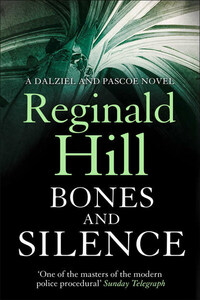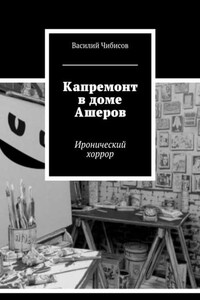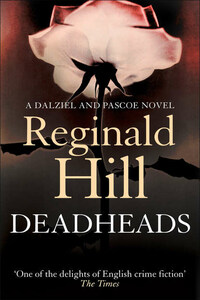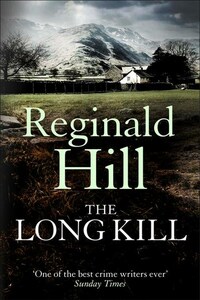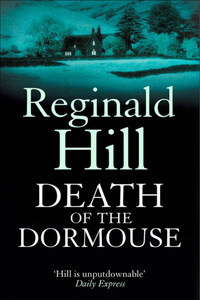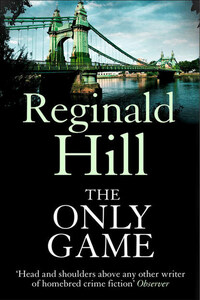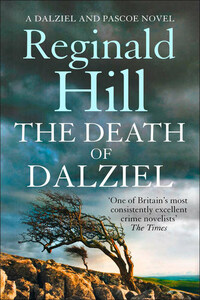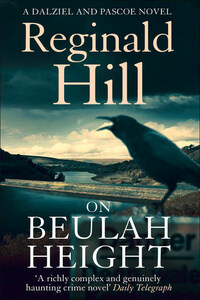REGINALD HILL
BONES AND SILENCE
A Dalziel and Pascoe novel
This novel is entirely a work of fiction.
The names, characters and incidents portrayed in it are the work of the authorâs imagination. Any resemblance to actual persons, living or dead, events or localities is entirely coincidental.
Harper An imprint of HarperCollinsPublishers 1 London Bridge Street, London SE1 9GF
First published in Great Britain by
HarperCollins 1990
www.harpercollins.co.uk
Copyright © Reginald Hill 1990
Reginald Hill asserts the moral right to
be identified as the author of this work A catalogue record for this book is available from the British Library
All rights reserved under International and Pan-American Copyright Conventions. By payment of the required fees, you have been granted the nonexclusive, nontransferable right to access and read the text of this e-book on-screen. No part of this text may be reproduced, transmitted, downloaded, decompiled, reverse engineered, or stored in or introduced into any information storage and retrieval system, in any form or by any means, whether electronic or mechanical, now known or hereinafter invented, without the express written permission of HarperCollins e-books.
HarperCollinsPublishers has made every reasonable effort to ensure that any picture content and written content in this ebook has been included or removed in accordance with the contractual and technological constraints in operation at the time of publication.
Source ISBN: 9780586211281
Ebook Edition © JUNE 2013 ISBN: 9780007370283 Version 2015-06-19
We insist, it seems, on living. Then again, indifference descends. The roar of the traffic, the passage of undifferentiated faces, this way and that way, drugs me into dreams: rubs features from faces. People might walk through me ⦠We are only lightly covered with buttoned cloth; and beneath these pavements are shells, bones and silence.
VIRGINIA WOOLF, The Waves
God: First when I wrought this world so wide,
Wood and wind and waters wan,
Heaven and hell was not to hide,
With herbs and grass thus I began.
In endless bliss to be and bide
And to my likeness made I man,
Lord and sire on ilka side
Of all middle earth I made him then.
A woman also with him wrought I,
All in law to lead their life,
I bade them wax and multiply,
To fulfil this world, without strife.
Sithen have men wrought so woefully
And sin is now reigning so rife,
That me repents and rues forthy
That ever I made either man or wife.
The York Cycle of Mystery Plays: âThe Building of the Arkâ
January 1st
Dear Mr Dalziel,
You donât know me. Why should you? Sometimes I think I donât know myself. I was walking through the market place just before Christmas when suddenly I stopped dead. People bumped into me but it didnât matter. You see, I was twelve again, walking across a field near Melrose Abbey, carefully balancing a jug of milk Iâd just got from the farm, and ahead of me I could see our tent and our car and my father shaving himself in the wing mirror and my mother stooping over the camp stove, and I could smell bacon frying. It was such a good smell I started thinking about the lovely taste that went with it, and I suppose I started to walk a bit quicker. Next thing, I caught my toe in a tussock of grass, stumbled, and the milk went everywhere. I thought it was the end of the world but they just laughed and made a joke of it and gave me a huge plateful of bacon and eggs and tomatoes and mushrooms, and in the end it almost seemed they loved me more for spilling the milk than fetching it safely.
So there I was, standing like an idiot, blocking the pavement, while inside I was twelve again and feeling so loved and protected. And why?
Because I was passing the Market Caff and the extractor fan was blasting the smell of frying bacon into the cool morning air.
So how can I say I know myself when a simple smell can shift me so far in time and space?
But I know you. No, how arrogant that sounds after what Iâve just written. What I mean is Iâve had you pointed out to me. And Iâve listened to what people say about you. And a lot of it, in fact most of it, wasnât very complimentary, but this isnât an abusive letter so I wonât offend you by repeating it. But even your worst detractors had to admit you were good at your job and you werenât afraid of finding out the truth. Oh, and you didnât suffer fools gladly
